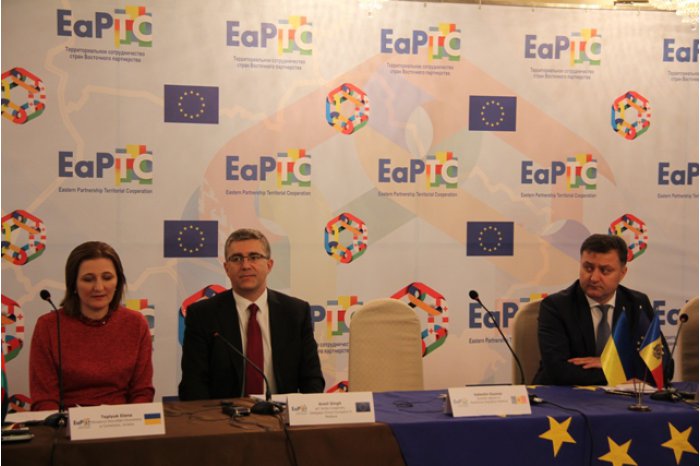Moldova, Ukraine to benefit from 3.3 million euros from EU within cross-border cooperation project
16:59 | 01.02.2017 Category: Economic
Chisinau, 1 February /MOLDPRES/ - The European Union will provide Moldova and Ukraine with 3.3 million euros within the Moldova – Ukraine Territorial Cooperation Programme, in order to improve the living conditions of local communities and jointly overcome cross-border challenges in education, culture and sport. To this end, 16 beneficiaries of grants from both countries signed contracts on financing at a solemn ceremony in Chisinau today.
At the event, the representative of the European Union Delegation to Moldova, Aneil Singh, said the European authorities were always open for backing projects which bring benefits to citizens from the partner countries. “Creating opportunities for the communities of the two states to cooperate between them in approaching and solving problems, such as improving the environment, creating jobs or implementing new strategies in the tourism sector, represents a basic goal of the EU,” the European official said.
For his part, Regional Development and Constructions Minister Vasile Bitca said that the “policies of regional development promote, in principle, the economic development of local communities. Thus, through programmes on cross-border cooperation, local authorities benefit from an efficient framework of maintaining relations between countries, which encourages the sustainable development,” Bitca said.
In the context, a representative of the Ukrainian Economic Development and Trade Ministry, Olena Teplyuk, said that Ukraine’s participation in this programme represented “a new stage of development, strengthening and settling the problems faced the regions of Chernivtsi, Vinnystya and Odessa, in the context of modernization and development of things in the neighbor countries.”
The programme’s goal is to create a friendly environment for initiatives of territorial cooperation along the borders between member states of the Eastern Partnership, by observing the specific feature of each frontier region separately. Also, the project sees strengthening the capacities of local, regional authorities, as well as of non-governmental actors, in order to jointly develop and implement cross-border activity plans.
(Reporter P. Beregoi, editor L. Alcaza)

